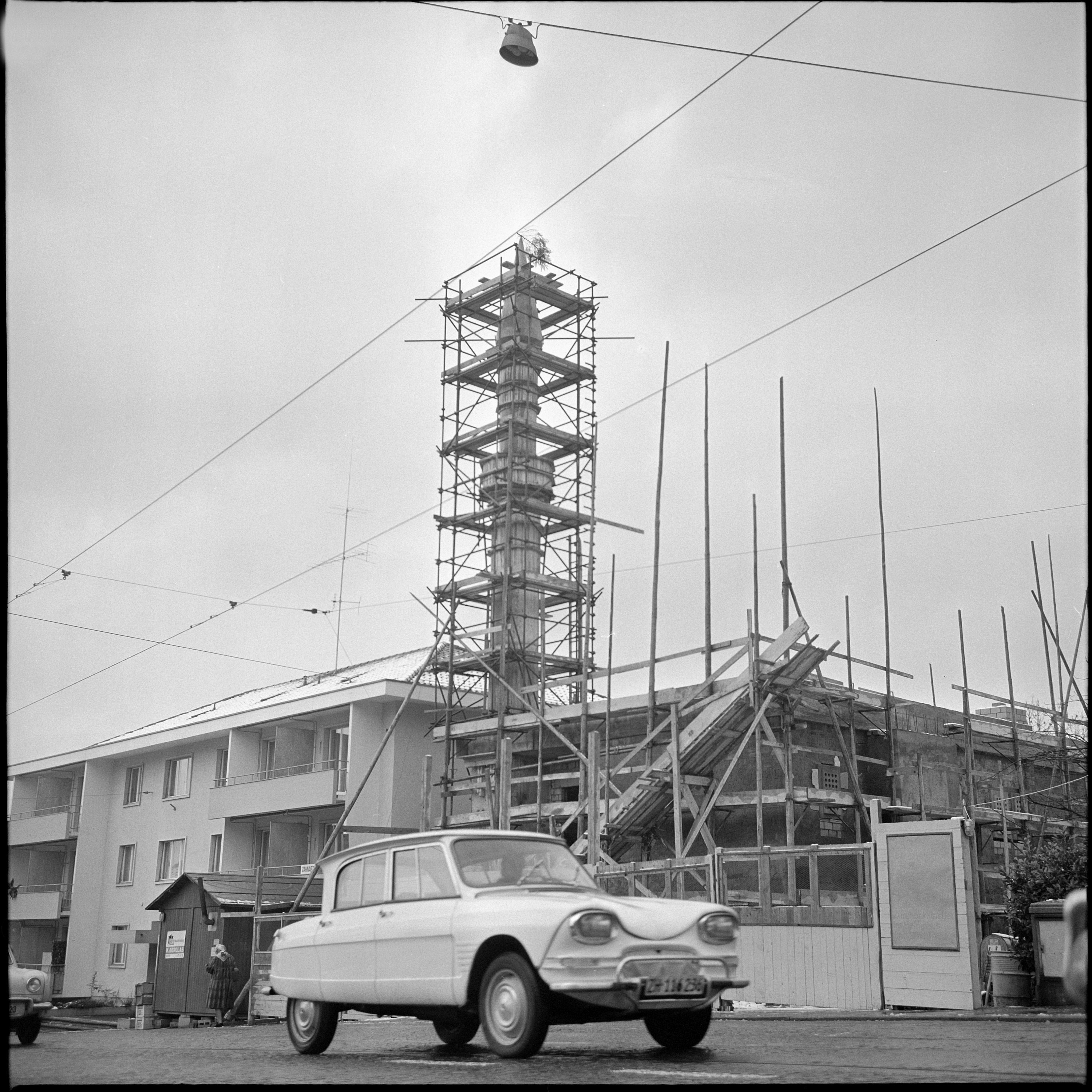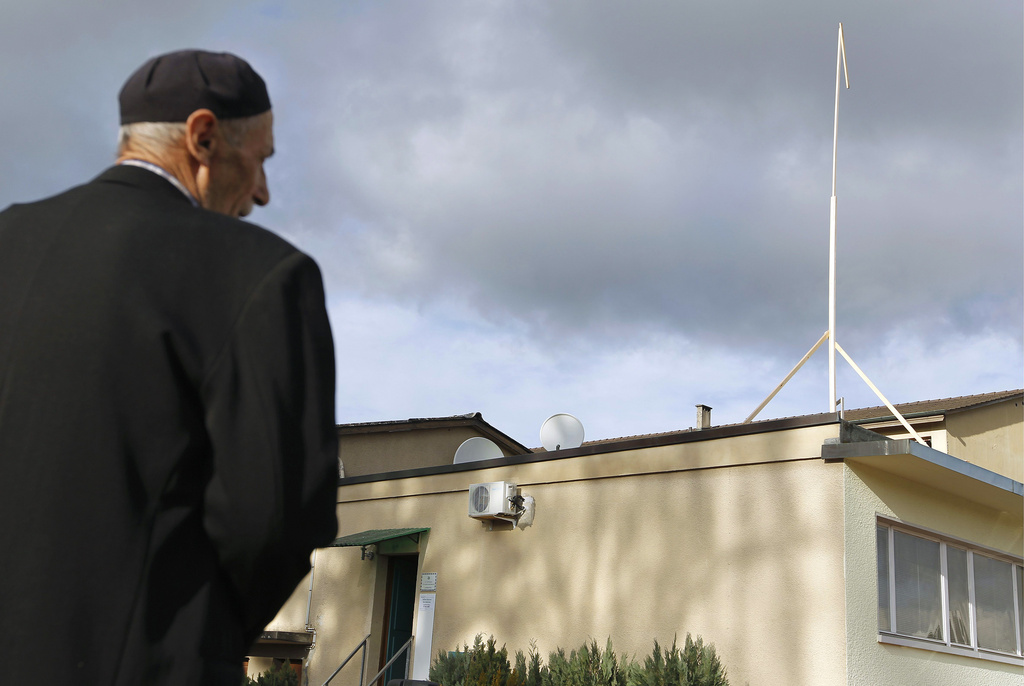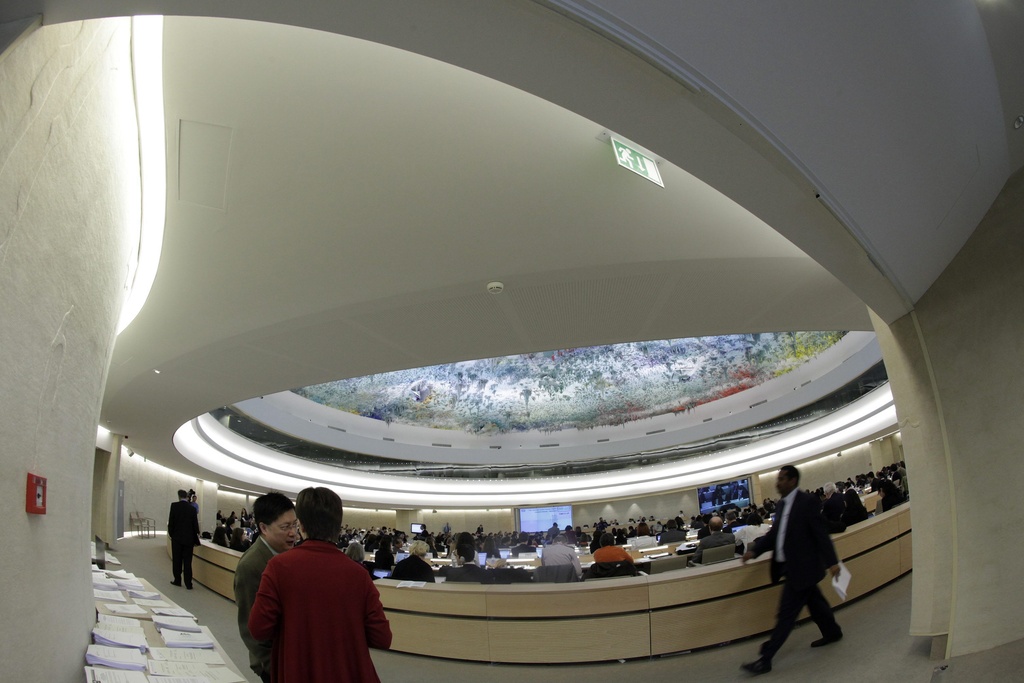Swiss minaret ban “feeds mistrust”

The minaret ban in Switzerland has fostered mistrust in society and laid bare cracks within the political parties, sociologists and political experts say.
Their comments come six months after the ban on the construction of minarets was voted in by 57.5 per cent of the electorate.
“The minaret initiative was the first in the history of Swiss democracy to be discussed more after the vote than before,” says parliamentarian Andreas Gross in his introduction to the new book “Minaret Initiative – Between Provocation and Confusion”, which assesses the initiative’s consequences for human rights and direct democracy.
For Sandro Cattacin, a sociologist at Geneva University, the vote has not had a big impact on daily relations between the Swiss and foreigners.
“In the Arab community in Geneva we have, however, noticed a clear rise in mistrust towards Swiss institutions,” he said.
This is a worrying development, added the professor, who sees mistrust becoming an enemy of peaceful community relations. “If a system is based on mistrust, as is happening today in Switzerland, it contributes to the fomenting of conflicts,” he added.
Fears remain
Mallory Schneuwly Purdie of the Swiss Observatory of Religions says it’s difficult to single out what exactly has changed in the past six months.
“We have observed that fears over Muslims remain and their image is still negative in Swiss society. These days you are Swiss or Muslim, but never a Swiss Muslim,” she said.
Cattacin believes that the “drama of the vote” has put paid to years of integration policy. “We saw this after the xenophobic initiatives of the 1970s when many young people refused to take Swiss citizenship in a society that had rejected them.”
He believes that current integration policies are not enough, especially in rural areas where support for the ban was higher, and that clear signals are needed, such as anti-discrimination laws.
Schneuwly Purdie says allowing more bans won’t solve integration problems, which affect young second-generation foreigners in particular. In the 2000 census, she points out, around a third of Muslims in Switzerland were under 15 years old.
“Woken up”
For its part, the rightwing Swiss People’s Party, an avid supporter of the initiative, maintains that the ban does not go against freedom of religion, but actually strengthens integration.
“The other parties and the government have finally woken up to the problems of Islam in Switzerland,” said Silvia Bär, deputy secretary-general of the party.
The party’s motives were based on its fears of an “Islamicisation” of Switzerland. It says it doesn’t want the development of a parallel Muslim society, in which sharia law could run contrary to Swiss civil law.
The vote has also had political implications, splitting the parties, says Oscar Mazzoleni of the Observatory for Political Research in Bellinzona.
“The topic crossed traditional divisions between the right and the left, provoking different, and even opposing sensibilities,” he said.
Hans Hirter, a political scientist at Bern University, says this particularly applied to centre-right parties. “You can see it in that the Radical and Christian Democrat elites were against the initiative, but their electorate mostly supported it.”
Mazzoleni says the parties are now more aware than before the vote that Muslim and Islam issues are a part of foreign policy with possible consequences for Switzerland’s image abroad.
Burqa debate
He is not surprised that there is a certain hesitancy about the burqa issue. “It is one thing to talk about immigration, foreigners, naturalisation and the right to asylum in general; it is quite another to start a campaign against a specific group, defined from a religious point of view. This is a new development compared with past decades.”
Canton Aargau has already decided to prepare a cantonal initiative to outlaw burqas in public spaces in Switzerland. Similar projects are being examined in cantons Solothurn and Bern.
In mid May, the Swiss government recommended the rejection of a motion by People’s Party parliamentarian Oskar Freysinger, who called for all face veils to be banned, citing the law on internal security.
Mazzoleni believes that Switzerland is in a waiting phase.
“On the one hand canton Aargau has taken a clear position; on the other we are waiting to see what happens abroad, especially in France and Italy, to not risk becoming isolated once more.”
Luigi Jorio, swissinfo.ch (Adapted from Italian by Isobel Leybold-Johnson)
This article is the second in a series of three examining the situation six months after the nationwide vote on November 29, 2009 banning the construction of new minarets in Switzerland.
On November 29, 2009 just over 57% of voters approved a proposal to ban the construction of new minarets in Switzerland.
But some experts do not rule out the possibility that a minaret could be built at a mosque. A project in the town of Langenthal is being examined by the cantonal authorities.
“We are studying the implications of the minaret ban on the project in Langenthal,” says Anita Horisberger, a legal expert at Bern’s cantonal construction department. A decision is expected by autumn.
For Daniel Kettiger, a legal advisor to the local Islamic community, a ban should not even be an issue as the application for the construction was lodged in 2006 – three years before the vote.
However, Rainer Schweizer, professor of law at St Gallen University, argues the ban also applies to requests still pending.
The Langenthal Muslim community says it will challenge any ban at the European Court of Human Rights.
Six appeals have been lodged at the Strasbourg-based tribunal against the anti-minaret vote. The court has taken no decision yet on whether to admit the appeals.
There are an estimated 350,000 Muslims in Switzerland (2008 figures). Their numbers nearly doubled in the 1990s.
Around 10% of Muslims have Swiss citizenship.
Muslims made up 4.3% of the Swiss population according to figures of the 2000 census. Islam is the third-largest religion in Switzerland behind Catholics and Protestants.
Around 56% of Muslims in Switzerland immigrated from southeastern Europe, mainly from Albania and Bosnia. A further 20% come from Turkey, 4% from North African countries, 3% from Lebanon and the rest from sub-Saharan Africa.
There are 180 Muslim prayer rooms in Switzerland. Four mosques have a minaret: Geneva; Zurich, Winterthur and Wangen near Olten.

In compliance with the JTI standards
More: SWI swissinfo.ch certified by the Journalism Trust Initiative














You can find an overview of ongoing debates with our journalists here . Please join us!
If you want to start a conversation about a topic raised in this article or want to report factual errors, email us at english@swissinfo.ch.